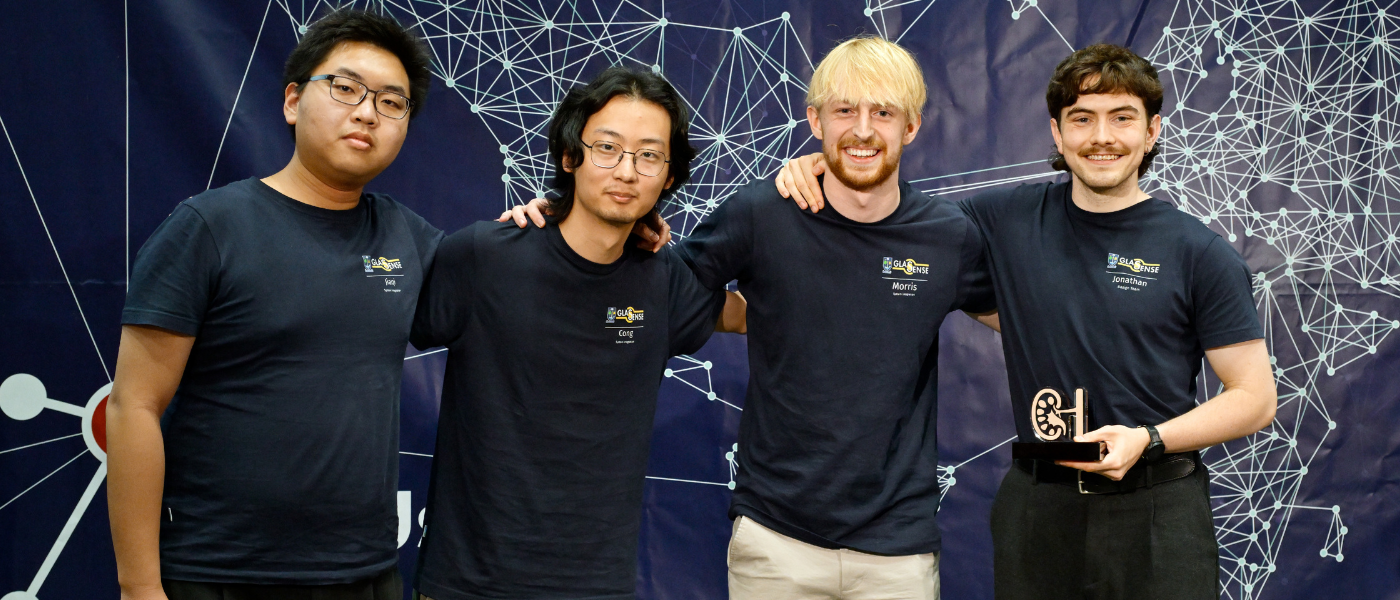
Supporting Student Innovation
The Chancellor’s Fund supports a wide range of projects and initiatives at the University of Glasgow and beyond, with the aim of enriching the student experience, developing skills and nurturing inclusion.
One of the many projects that you enabled the Chancellor’s Fund to support in 2025 was the UofG entry to the international SensUs student competition. This annual event is run by students at Eindhoven University of Technology in the Netherlands and sees teams of students from around the world develop innovative biosensors that tackle a chosen health theme.
The theme for 2025 was acute kidney injury and UofG’s multidisciplinary team of ten put collaboration at the centre of their project. Known as GLAsense, the team included engineers, computing scientists, designers and biochemists. Supported by the National Kidney Federation and Kidney Research UK, the team worked closely with individuals with chronic kidney disease to develop patient-centric solutions.
Working from the University’s Mazumdar-Shaw Advanced Research Centre, GLAsense developed a prototype using optical techniques to offer at-home testing of the levels of biomarkers in blood linked to kidney health. This innovative design, known as Nephros, earned the team third place in the Transition Potential Award category.
Professor Julien Reboud and Dr Chunxiao Hu supervised the project. Julien said, “We are truly grateful for the funding from the Chancellor’s Fund. As a student-led project, the work of GlaSense required key resources to develop their prototype biosensors and the support helped participants to obtain the materials they needed.
“Such funding allows the students to undertake independent hands-on experiments in the lab. This leads to inevitable failures which are to be treasured as they help students to bounce back with more knowledge, experience and understanding of the challenges associated with research and development. At the end of the year, the students that take part are ambassadors for the importance of risk-taking in experiments. That knowledge translates to their cohorts in teaching labs and then spreads informally throughout the disciplines”

